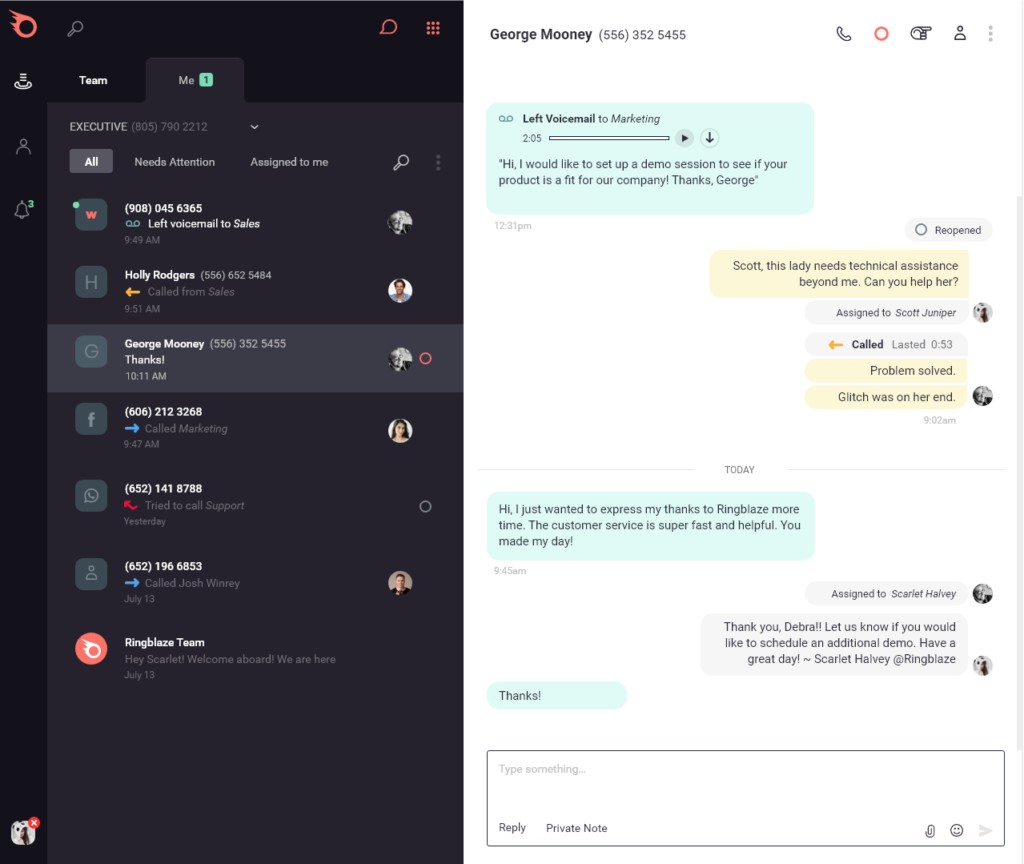Guest Post: Dennis Vu
Go through your foolproof “Sales Perfection” checklist, everything seems fine, and yet — the team’s performance is not improving?
Don’t worry, you’re (probably) not jinxed; some of the mistakes that you and your sales team might be making are quite sneaky. They are pretty hard to spot if you don’t know what to look for and it can happen to anyone.
To break free from the plateau, take a look at these 5 subtle errors that sabotage your performance and learn how to curb them.
The following article will guide you through these mistakes:
- Not Using The Tech To Its Full Potential
- Lacking Of Communication Skills
- Failing To Learn From Experience And Previous Mistakes
- Not Using The Knowledge To Attract The Prospects
- Forgetting To Dedicate Time For Proper Social Selling
The Sales Tools Don’t Do Enough For Sales Reps
It’s often counterproductive to force your reps to close more deals. If they’re already doing their best, none of the pep-talks and simulations can squeeze more from them — it might only demoralize them.
Try changing your approach: maybe the tools need to be updated, not the people. No, not everything needs to be new and/ or expensive!
To improve your tech stack without wasting precious financial resources, take a look at the existing tools first. Are you using them to their full potential, know all of their functionalities, and how to use them for various work tasks? Is your sales team aware of tools’ capabilities as well?
Then, investigate everyday tasks and issues that regularly come up, and ask the reps to describe them. Can you streamline the current cadence? Is it possible to come up with shortcuts that solve the problems or prevent them entirely?
When you complete this research, it will be easier for you to determine what is lacking, and what’s extra there. Cancel the subscription to the services that aren’t necessary, and update the plans to fit the customer service needs.
Evergreen Sales Tools For You To Consider
Now that you’re sure that there is no fluff in your toolkit, it’s time to fill in the gaps.
It’s not an easy task to determine the perfect formula, because each business has different needs. Size, type of products/ services they offer, markets they serve — all of these are deciding factors, and they suggest that business owners and their employees are the ones that need to make a decision.
Luckily, there are some tools the sales team needs no matter what:
Team Collaboration Tools — The sales team cannot be fully functional without the right communication and data-sharing features. When looking for a business phone system, make sure it has a shared dashboard that enables fast and interactive calls: this will bring the team members together no matter where they are (good for the current work-from-home situation).
Features such as Call Comments, Call History and Call Recording help each member access the crucial data at any time.

Task Automation Tools — Because not everything needs to be done manually. If you get smart and practical about it, process automation can boost rep productivity by 46%!
There are plenty of features that help with task automation: data entry, embedded calendars with follow-up schedules, ready e-Contracts — all of these cut the time spent on routine tasks, enabling reps to perform better and dedicate their time to skilled labor.
 Extensive Customer Support Options — It’s very important to stay available to every customer out there, no matter what kind of communication they prefer. Direct call widget is a great feature to have on your website because they can call you without leaving the website — and the rep can guide them through as they speak.
Extensive Customer Support Options — It’s very important to stay available to every customer out there, no matter what kind of communication they prefer. Direct call widget is a great feature to have on your website because they can call you without leaving the website — and the rep can guide them through as they speak.
In addition to that, Email, Chat and Phone Support options serve those who prefer typing or don’t have a computer at their disposal in the moment of speaking.

Sales Data Mapping — Outside sales teams will benefit greatly from having this type of data organization. They can create custom sales maps and pinpoint the exact geographical location of leads, opportunities and existing customers, with all the info about them that they attached.
 Important note: A good salesperson doesn’t necessarily have a knack for tech stuff. Help them reach their potential by organizing onboarding and education sessions, so they will be able to learn how to use everything the software has to offer!
Important note: A good salesperson doesn’t necessarily have a knack for tech stuff. Help them reach their potential by organizing onboarding and education sessions, so they will be able to learn how to use everything the software has to offer!
Their Communication Skills Are A Bit Rusty
As ridiculous and redundant this may sound — stay with us.
Of course, you’ve made sure your sales reps are eloquent, confident, and sound persuasive. However, good communication demands so much more, and you’d be surprised by how many talented speakers lack some of the crucial conversation skills.
First up — the ability to actively listen. According to this article, the best salespeople listen more than they talk!
If the sales representatives like the sound of their voices are a bit too much, the chances are that they don’t listen to the people well enough. It causes them to miss the important cues from potential customers, and wonder what goes wrong later.
Talking too much too fast is something reps often do in fear that they won’t manage to tell them how perfect their offer is. Instead of rushing it through, they should ask smart questions, the ones that help with crystalizing their pain points and then adjusting the offer accordingly.
It’s much better to introduce the products/ features as direct benefits than to learn all of them by heart and recite them.
Forgetting to ask the important questions — or forgetting to ask anything beyond “are you interested” is another mistake. Reps shouldn’t get too technical about the offer; instead, they should learn what could help improve the prospects’ lives and only then let them know how their solution fits.
Beating around the bush is a deadly sin in sales. Getting straight to the point saves time for both of you; in any case, sales reps should let the prospects speak more, and lead the conversation towards the goal. While they’re at it, one of the deciding questions would be about their budget.
A lot of people are squeamish about money-related questions, but if they are properly phrased, they can only do you good! The reps will then know what kind of service plan or product package to recommend, without going on and on about things the prospect doesn’t care about.
They’re Not Learning From Experiences And Mistakes
“Insanity is doing the same thing over and over again, but expecting different results”, Rita Mae Brown (the quote is often misattributed to Albert Einstein) correctly stated in the ‘80s.
Is your sales team doing the same thing just?
Whether it’s easier or they’re not aware of it, this mistake creeps into the routine often enough. Learning from one’s experience is a course you cannot buy anywhere online, it is free, but failing to do so can cost you a fortune.
To prevent the same mistakes from happening again, compile your unsuccessful cases, and examine them with undivided attention. Do you see any recurring mishaps? Does your team face issues with a certain demographic, or they fail to sell a certain product from your offer?
Of course, the team members should be involved with uncovering the performance problems, as you’ll need to make a detailed inquiry. Once you identify what causes the poor performance, change the thing in question right away.
For the future, consider creating a detailed report system with important notes, CRM reminders, and warnings regarding the most usual mistakes. Be sure the reps are documenting every step in the sales funnel, especially the follow-ups!
This doesn’t only serve as a way to organize the team and keep track of tasks, but as a learning material as well.
They Fail To Use Their Knowledge The Right Way
It might be tempting to focus on what you have to sell rather than focusing on what the customer wants to buy. The success comes when these two overlap instantly, but that’s rarely the case.
As we mentioned above, good communicators will let the other side open up and tell them more about their needs. Only then is the sales rep’s turn to talk — and when it comes, they should make an intelligent connection between the problem and their product.
It doesn’t matter how much they know about the company’s service if they don’t know the right way to express it and woo the prospects.
They Forget How Important Social Selling Is
Granted, LinkedIn might look less interesting than Instagram — for the ones that don’t know how to use it, that is. It is a perfect playground for social selling, B2B prospecting, and reaching thousands (we’re not exaggerating, btw) of people with unique stories about your brand.
In case you’re uncertain how to reach out to someone on LinkedIn, we recommend importing your mobile address book, joining LinkedIn groups focused on relevant topics (sales), always applying personalization when sending requests and using omni-channel outreach in your campaigns.
As an irreplaceable social selling tool, LinkedIn enables you to do the following free of charge:
- Post engaging stories that serve as building blocks of your influence
- Communicate with potential buyers and business associates in a less formal, and more fun and attractive way
- Offer valuable content that helps you establish a good reputation
- Gain incredible insight into your audience: their pet peeves and needs
- Build relationships and genuine friendships with industry veterans
Warming up the leads via LinkedIn is one of the top tactics you can include in your arsenal!
Summary
If your team’s performance has been lackluster recently and nothing seems out of the normal — it’s time to dig deeper and reevaluate your business practice. Examine how your reps talk to prospects, and you’ll probably find things that can be improved.
_________
Author Bio:
Dennis Vu is the CEO and Co-founder of Ringblaze, a virtual business phone system company that helps teams to better serve their customers, anywhere.



